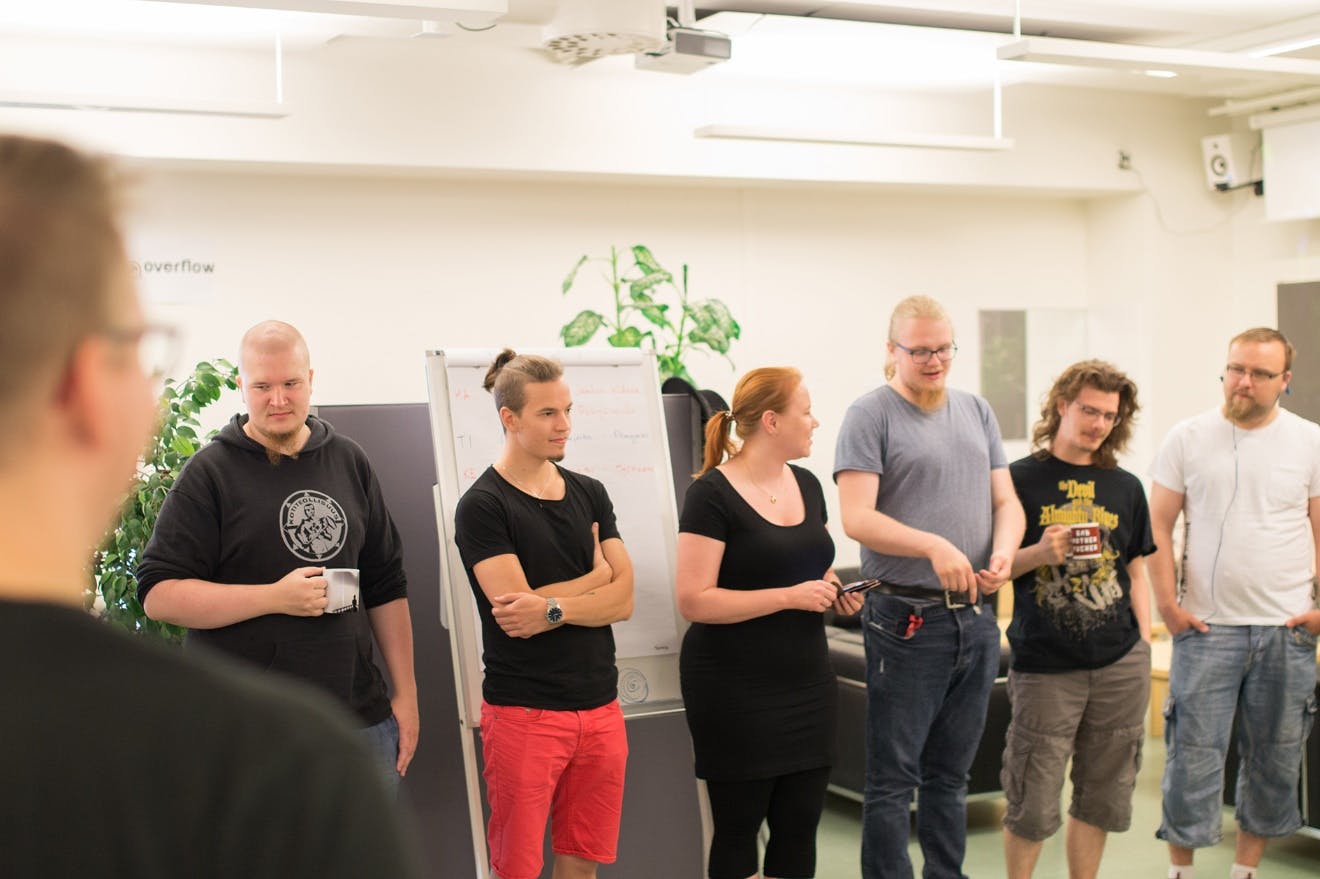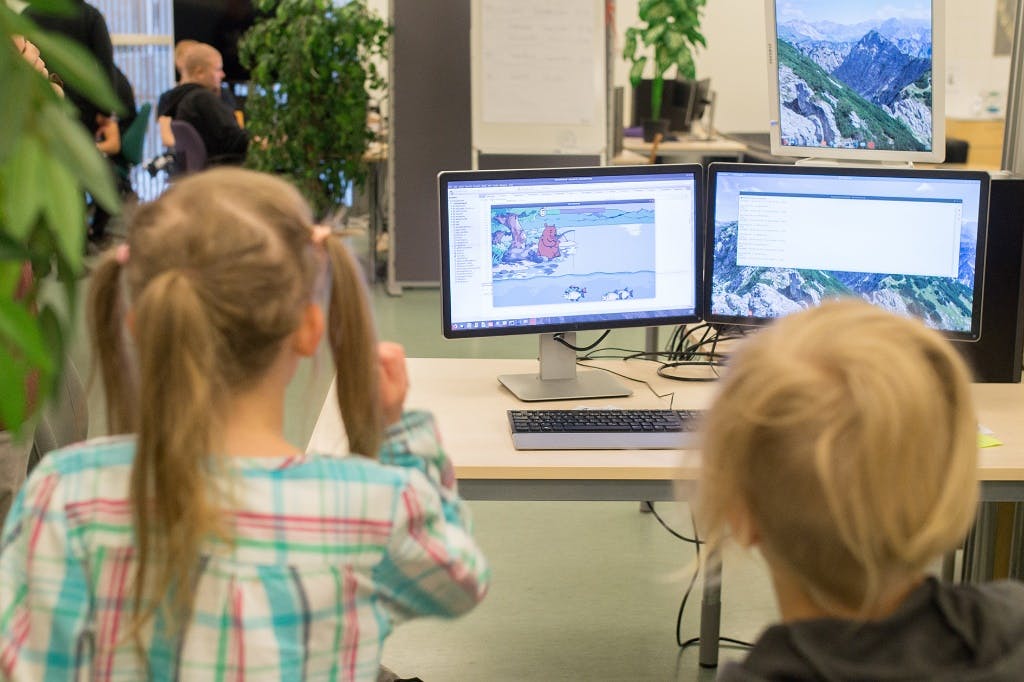6.0 Practices
Here are various practices used during WIMMA Lab 2018. They can be applied to youe own projects if deemed to fit them.
6.1 WIMMA Lab's Common Practices
WIMMA Lab has a number of practices that have worked over the years. With established practices, for example: keeping a certain rhythm throughout the day and keeping open communication in many different ways.
Team Leaders Daily Scrum
Every morning, the team leaders of all virtual companies gather with the coach to hold a conversation, which is going through the overall situation of the teams. In this way, the leader of each team remains involved in the situation of other teams and, call a consultant from another virtual company to help them if necessary. The coach can share general information that everyone should know and to communicate that information to all the teams through team leaders. The meeting is made standing up and takes a maximum of 15 minutes. During this time, no more detailed work is to be done on the issues that have arisen during the meeting.
WIMMA Lab's stand-up
About once a week, all participants must have a common discussion session, which is held in the ring. Everyone, for example, tells what he has done during the past week, what he has learned, whether he has come up with major challenges or what he is doing next. Content should be varied, speaking should take about half a minute per person. This is how you learn to briefly and concisely tell about your own doing, focusing on the main points. The coach can tell you about important information that needs to be handled along a 'more formal' route.

WIMMA Lab's weekly stand-up. Every participant in turn speaks about his own work with a few words.
Retrospective
At the end of the week, we look at the past week and how we have succeeded in achieving the previously agreed goals. The retro will also review the problem areas and how WIMMA Lab could be developed next week. Normally retrospects are considered to be at the end of the sprint, but due to the short duration of WIMMA Lab, they should be kept weekly to maximize benefits. Everyone who wants to join them can participate in the Retrospective.
Coffee Making Shifts
In the summer of 2018, WIMMA Lab introduced a weekly cycle whereby differrent virtual companies were responsible for making coffee for the participants a week at a time. It is advisable to make a note on the wall of the break room, which makes the rotation of the coffee shifts clearly visible to everyone. The first coffee brewer should make clear instructions to others so that everyone can certainly brew (good) coffee.

Continuous coffee intake is important for Finns.
Cleaning Shifts
It is also advisable to arrange the general cleaning of the premises right from the start. This should be incorporated into the tasks of the coffee-brewing team, or it can be made entirely on its own. The team on the cleaning turn ensures that there are no unnecessary trash on the tables and things are neatly in place.
Taking bottles to the shop
For the recycling of bottles, you should reserve one large bin in the space where only empty bottles are thrown. For example, at the end of the week, the team responsible for cooking coffee can take the bottles accumulated during the week to the store and buy something nice for themselves. Alternatively, the accumulated money can be used for the benefit of all WIMMA Lab participants.
6.2 Internal Company Practices
It is good for every virtual company to have certain common practices that are also used by all other teams. This ensures uniformity of practices.
Asking for continuous feedback
Virtual companies should consult the client as often as possible to get feedback on their work. The more often feedback is received, the better work can be directed in the right direction.
Wherever possible, end-users should be invited to test the product to provide valuable feedback on product development.

End users test the Iotitude team fishing game.
Team's own daily Scrum
The team leader keeps a conversation with his team every day for his team. Each team member in turn tells about his or her own work, what has been done to reach the goal and what challenges have come up. The meeting is kept standing and takes a maximum of 15 minutes. During this time, no more detailed technical specification will be made for the work to be done. Daily Scrum aims to effectively share information within the team and find obstacles that obstruct doing things as quickly as possible.
Sprint Planning
At the beginning of each sprint, the teams define goals that should be reached during the sprint. Goals are recorded on the Kanban board backlog (read more about them in Chapter 8) and their performance is monitored during the sprint. In the WIMMA Lab in the summer of 2018, one Sprint was two weeks long, so sprint planning was always on Monday.